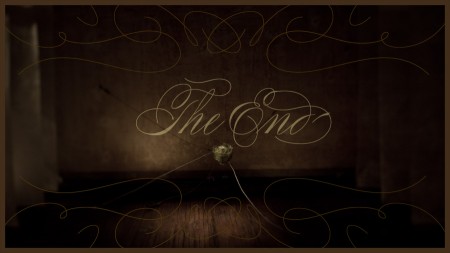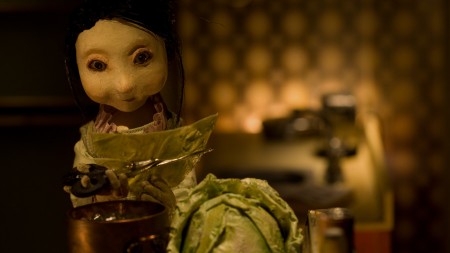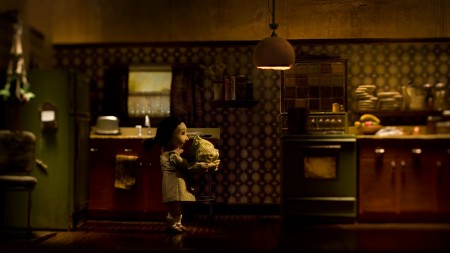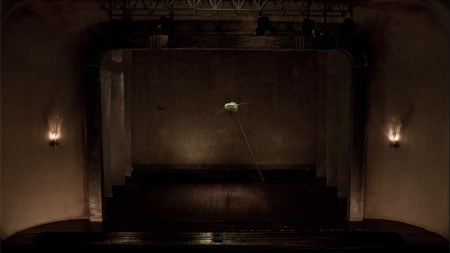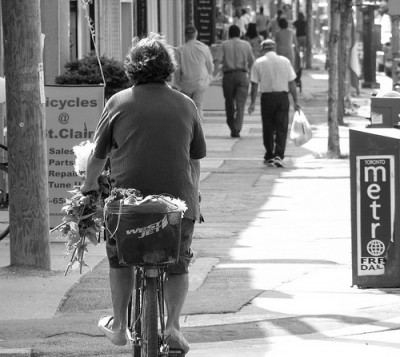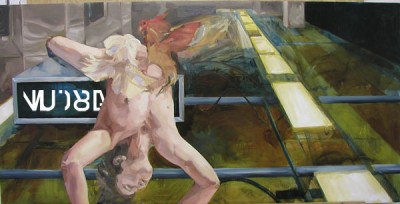Well, I’ve delivered the tapes to Bravo. As of yesterday at 4:30 pm, Little Theatres: Homage to the Mineral of Cabbage, the film, is officially complete!
I am feeling: tired, relieved, ecstatic, anxious, breathless, proud, sad, empty, excited, listless. When I dropped the package in to the Shipping and Receiving department of CTV, I was almost in tears. OK there may have actually been a tear or two shed. But I felt instantly lighter after the package was out of my hands. Plus the cycling of emotions listed above.
I’ve spent the past 24 hours or so either conked out in a deep sleep or reflecting on the past 3 years. Yes, it’s been almost 3 years since I first had the crazy idea to start this project.
I remember in the early days. At first, while writing the proposal, I was enthusiastic, energized, high on the process of coming up with fun ideas. Then, when I was awarded the grant, it finally hit me that there was a lot of work ahead of me. I wasn’t sure whether or not I could handle it. Well, in the early days I was pretty sure I could get through just about anything, that I could figure out whatever I didn’t know how to do. I had an optimism, a sense of adventure, and a carefree idealistic belief that anything I put my mind to, I could do.
But as I started working on it, the reality of how enormous this project was started to sink in. I started to scale down my initial ideas and techniques.
I used Google and animation forums like stopmotionanimation.com to find out how to make puppets.  I read tonnes of blogs, like Sven’s, and Shelley’s, and Mike’s. I researched which sort of cameras and lenses to use. I met up with strangers, friends of friends, and people whose work I’d admired, to find out how they did what they did. I asked a lot of people for help. When I didn’t know what to do, I would do everything I could to find out how to do it. Sometimes I didn’t find the answers and was stuck in a frustrating place of not knowing how to proceed. This happened quite a few times, but most memorably during the puppet-making stage… I really didn’t know what I was doing, and was finding the process really difficult. Each solution led to a dozen new problems. I didn’t know how to keep it simple. It took two months before I found materials and methods that would work. And they still had faults — my very first shoot had a puppet crisis… The puppets needed to be redesigned at this point. But then, once rebuilt, they were fine, and they lasted throughout.
Then came the shooting. Again, I was fairly ignorant. The most important and complicated feature of photography is lighting. Where to begin? Here I was lucky to have a very kind friend (whom I hadn’t seen in years) come to help out… but still, couldn’t entirely rely on such generous favours. So I would, at first, work on paid gigs between times when he was available, and just wait to set up the next shot whenever he had time… Trying to learn as much as I could as the process unfolded. This blog came in handy for this — I enjoyed putting together lighting tutorials, to try and preserve and practice what I was learning. But I still felt incapable.
Eventually I realized that if I was ever going to finish the project, I needed to just go ahead and light scenes myself. Marcus had lit the most complex ones… so really, how hard could it be to take the bits and pieces of Lighting 101 that I had gleaned from him, and start lighting scenes myself? How hard could it be to light a single object, a cabbage, on a stage?
Well it turned out to be difficult, but not impossible. I was imagining a film of 2 or 3 awesomely lit scenes, amidst a bunch of really badly lit ones. But to my eyes, anyway, it ALL looks really good! I’m so, so happy with how the little film has turned out. I could not be more proud of it, or more satisfied. It feels really, really good to have put this little 3 minutes of imagery (and sound, and music!) out into the world.
I now know how hard it is to make a short film. I know the feeling of being overwhelmed at the enormity of the project. In the early stages, when building the sets, I was halfway excited by the ideas still, and halfway terrified of all the unknowns that were ahead of me. The first two months of set-building and prop-making were easy peasy — I know what I’m doing when it comes to making stuff by hand, and painting little things, and planning and designing. No problem! The days flew by, and I got lots of stuff done. But as I ventured into any sort of new territory, like puppetmaking, and eventually lighting, the doubting started. What if I can’t do it? How will I know how to do such-and-such? And this is just the beginning… look at all there is left to do after that, so many more things I’ve never done before. Panic! Abort mission! Let it drift away! Go back to designing endtags for Product X! Forget this artistic stuff, it’s too hard! And where’s the reward? Every day I panic and worry and sweat and I’m not even getting paid! It’ll never get finished anyway. Every day, there were more and more doubts.
I really don’t know how I stuck to it. I’m not even really the sort of person who always finishes every project I start. I have many unfinished paintings. I have unfinished books, outlines for novels, screenplays, series of poems that have just died away.
A few things blossomed for me while working on this film. The concept of just doing a little bit every day, and not thinking about the big picture all that often, really helped. I learned that from my partner O, who realized halfway through his years and years of education that he didn’t want to stay in the world of academia. How many people start PhDs and actually finish them? All that work, meanwhile knowing that it isn’t going to be the right path? Well, somehow he did. Plus, he finishes books that he starts, pretty much every single one, even if he realizes on page 5 that the writing is horrendous or that he can’t stand the main character. I mean, conceptually I can say that I get it, I know to take it a single, small step at a time and just do the best I can, but it really took making this film to learn how to actually do that. How to not get overwhelmed and panic and give up.
I also learned how to ask for help. I usually dive right in to any foreign element of a project, with the idea that I can figure it out myself… But a project of this size simply can’t be done alone. So I am indebted to a lot of people, and grateful for a lot of talented offerings that came along. Sometimes such offerings were in response the desperate cries for help that came out of my mouth, against my usual stubborn working-solo nature. But sometimes people just offered to help, in any way they could, out of nowhere. So I learned, as well, a sense of grace and generous creative spirit, that I intend to keep alive for others.
So, I’ve written a little essay here… Obviously I have more time on my hands for blogging, now that the film is finished… Ironic? Appropriate? You decide.
A big, giant, ginormous thank you to you, and you and you. I’m so happy to have completed this project, and so happy to be feeling so good about it. I owe this happiness to a lot of people… So, thank you!
(BTW… I know I have to get back to the working world, back to design, which I obviously enjoy as well… but I’m also starting to plan the next short film, to be worked on during my down time. So it’s addictive, this filmmaking thing.
Also… going to try and show Little Theatres in some festivals — this is why I haven’t shown too much final footage here. It’s only a 3 minute film, so every second counts! I will, however, show off a few stills, as you can see in this post… though they may be somewhat familiar already…)
I will keep you posted here on festivals, the process of applying for them, whether or not it will be showing at any of them; as well as on any sort of website or trailer that will emerge in the near future. And of course when it’s airing on Bravo! I’ll be spreading the word about that, too.
Mwah!

